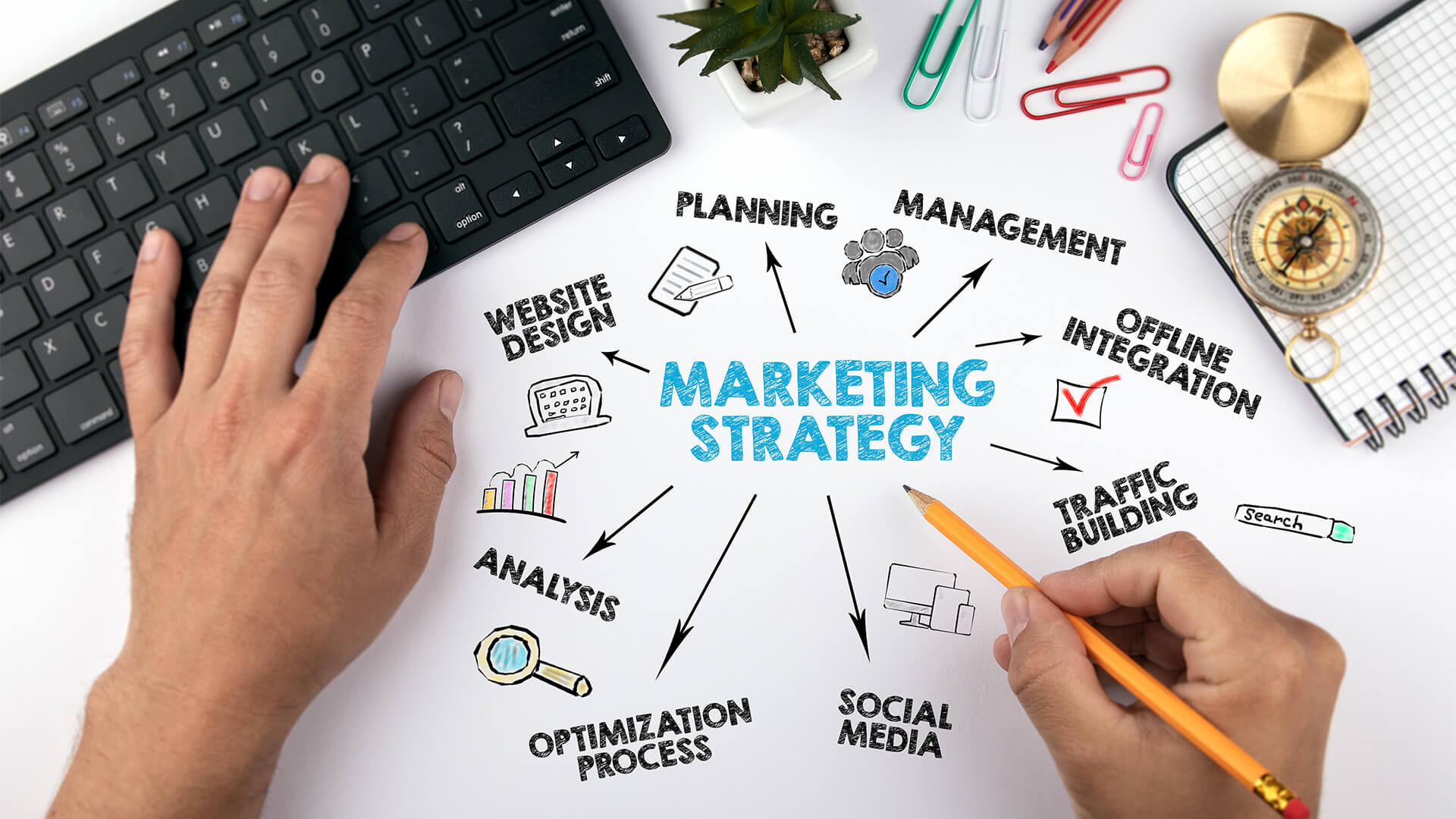Jessica Day – Senior Director, Marketing Strategy, Dialpad
When running a small business, a good marketing plan is essential. You need to work hard to stand out in the crowd – not just against local competitors but against larger corporations in the same industry.
This can be tough, especially if you’re a small operation. There are a thousand things to keep track of, from obvious concerns like profit margins and stock levels to more specific issues like DevSecOps compliance before you can even begin to think of marketing strategies.
Luckily, there are lots of different ways you can make marketing easy, even as a small business. Using a specific marketing strategy will make drawing in customers simpler, which frees up more time for you to focus on everything else.
We’ve listed a few key strategies below that are guaranteed to help you grow your business and achieve your marketing goals.
1. Content Marketing
Content marketing is a broad term, and many of the other strategies we’ll discuss involve elements of this. It’s a truly essential strategy to understand if you’re looking to promote your small business.
Content marketing revolves around creating and sharing online material to attract and engage potential customers and stimulate their interest in your business’ products or services. And you should focus on making this material relevant to target customers. Create content that shows off your product or service’s key selling points and that answers the questions your customers might have.
For example, perhaps you sell handmade clothing, and you want to display the high-quality materials you use? Make a video, using an online video editor, or any tool of your choice, showing what makes your choice of materials superior, then post it to social media groups interested in clothing and similar handmade products.
Or maybe you’re an expert in business automation, and you’re looking for work as a consultant? Show off your knowledge by writing a blog post about the process of discovery, then feature it on your business website.
2. Social Media Marketing
Social media is a phenomenal marketing tool for small businesses, mostly because (for the most part) it’s completely free. With an effective enough social media strategy, you can achieve growth organically and without cost.
Facebook, Instagram, and Twitter are the main platforms that spring to mind, but you may benefit from using more specialised channels. Linkedin is great if you’re trying to market yourself to other businesses. And if your product or service can be demonstrated easily, you could post video content to Youtube or Tiktok.
The ease with which you can create an account and begin posting is another reason social media marketing is such a useful part of a great marketing strategy. Just remember that whatever platform you choose to use, make sure your content is engaging – keep your target audience in mind and what you’re trying to market. Make sure your posts appeal to your target demo and show off the best qualities of your service or product.
Many social media platforms also have built-in analytics tools, so you’ll have an easy time measuring your success when you use social media as part of a marketing campaign.
3. Influencer Marketing
Influencer marketing is essentially a collaboration between a business and someone with a large social media following with the aim of marketing the business’s product or service. Usually, the individual has a large following because they create content that appeals to a specific demographic. So if your business targets that same demographic, using their social media as a marketing platform is a smart move.
This is a good strategy for small businesses as it negates the need for a large social media following – by using the influencer’s online presence instead of your own, you don’t need to spend as much time growing your social media profiles before you use them for marketing purposes. Time you might have spent trying to build up your follower count can now be redirected towards another, more instrumental, business process.
It’s also good for small businesses as you may be able to arrange a deal with an influencer without having to pay a large sum of money – many influencers will team up with you in exchange for your goods or services.
4. SEO
SEO stands for search engine optimisation. This marketing strategy is all about enabling customers to find you in a busy marketplace by driving traffic to your website. It involves adapting your website so that it ranks higher on search engines and, therefore, improves your visibility.
Effective SEO mostly revolves around keywords – this is what people are typing into the search engine to find an answer to their queries. Your website must contain as many popularly searched terms as possible to rank well in search engine results.
For instance, if someone searches for “phone systems for small business”, a search engine will show pages that include relevant keywords like “phone systems” and “systems for small businesses”. Pages that only show shorter, less relevant keywords like “phone” or “business” won’t rank as high
A search engine will be able to find these keywords everywhere on your webpage: written into blog posts, as part of product pages, even in image file names.
Using Google Analytics will show you keywords that drive traffic to your website. The area within which your business operates factors heavily into where you rank in searches, too. So small businesses should use their town or region name as a keyword to make sure they rank highly in local search results.
5. PPC Advertising
PPC (Pay-Per-Click) advertising does cost money, but it can also be highly effective for small businesses. As you only pay when someone clicks on your advert, it’s an effective way to limit costs. Even if you do get a ton of clicks, the percentage of visitors who end up ordering should balance the costs.
Google offers a good PPC advertising system. Your adverts appear on the search results page, which means they should show up high in rankings when people search for the sort of things your business offers. As with SEO, good keywords are vital – your advert will only appear if it contains relevant keywords, so make sure you understand what people search for when they’re looking for the service or product you offer.
Another critical factor is having a good landing page. A landing page is a webpage that people who click on your advert are sent to. You need to make sure that your landing page is engaging and nudges prospective customers further down the sales funnel, or you’ll be paying for clicks that won’t be converted into sales.
6. Webinars
Holding events – such as conventions, demonstrations, giveaways – are great ways of attracting new customers. However, as a small business, you might not have the time or money to host such an event. A good alternative would be holding a seminar or the modern equivalent: a webinar.
A webinar is basically a discussion or training session held online. For your business, this would mean getting people to sign up for a short demonstration or discussion about what your business can offer. Give prospective customers a taste of your product or service. If you provide scheduling software, for example, offering some scheduling tips and demonstrating the features of your product will drive sales.
Webinars don’t always have to be all about your business, though. It could simply be on a topic related to your business that you’re knowledgeable about- if you run a call center, perhaps something technical like call center analytics.
Webinars are also a good way of building a network, as meeting and speaking to potential customers (or returning ones) can produce more sales leads for the future. It benefits the customer too, as they have the opportunity to ask you questions about your product or service, or (if the webinar isn’t about your business) they can learn more about the topic you’ve chosen.
7. CRM
Like content marketing, the idea of CRM (or customer relationship management) can mean different things to different businesses. However, the core idea is that you need to keep track of your existing and prospective customers to market to them more effectively.
Just like call center recording, CRM software keeps track of customer interactions so that businesses can adjust their operations to make future communications more positive. CRM software allows you to keep track of details like what customers have purchased or shown an interest in so that you can adjust your marketing strategies.
Larger businesses frequently use CRM software because it’s essential in customer support automation. Automated customer support systems can use a CRM database to view previous questions customers have asked, then answer them without the need for a human agent.
Always Have A Plan
If you take one thing away from this article, make sure it’s this: have a strategy for everything. Sales strategies, customer engagement strategies, and marketing strategies – the more you plan, the more stress and confusion you avoid.
Marketing strategies should be your starting point since attracting customers to your business will be your first step towards making a profit. So if you’re already running a small business or just writing a business plan, make sure that developing marketing strategies is at the top of your to-do list.








